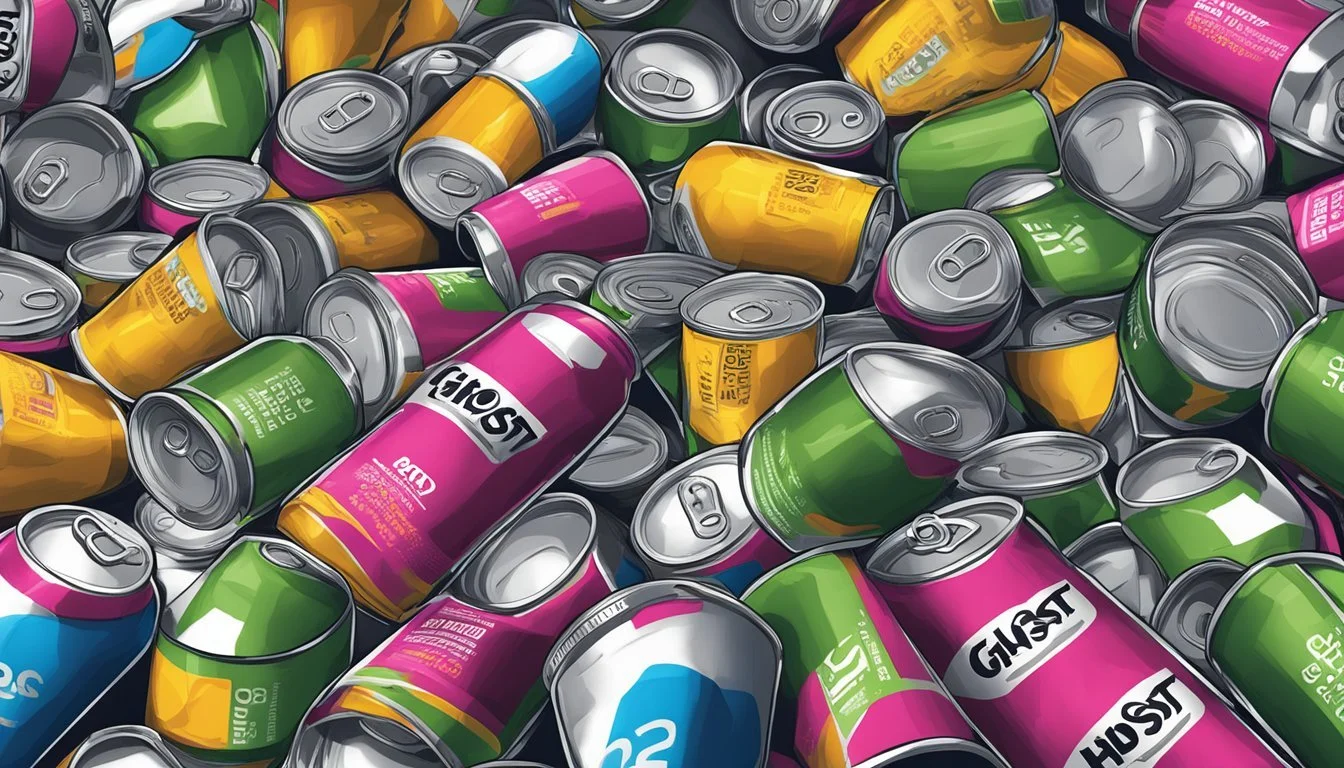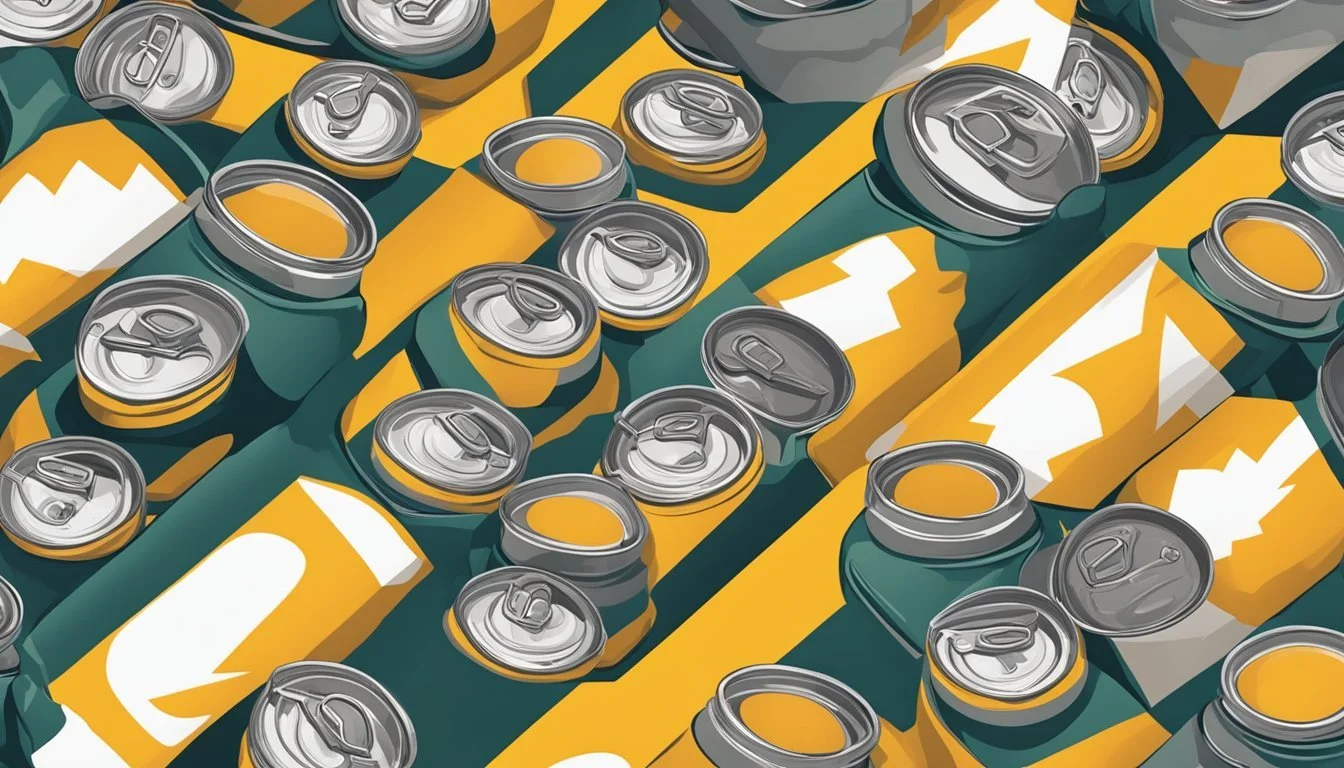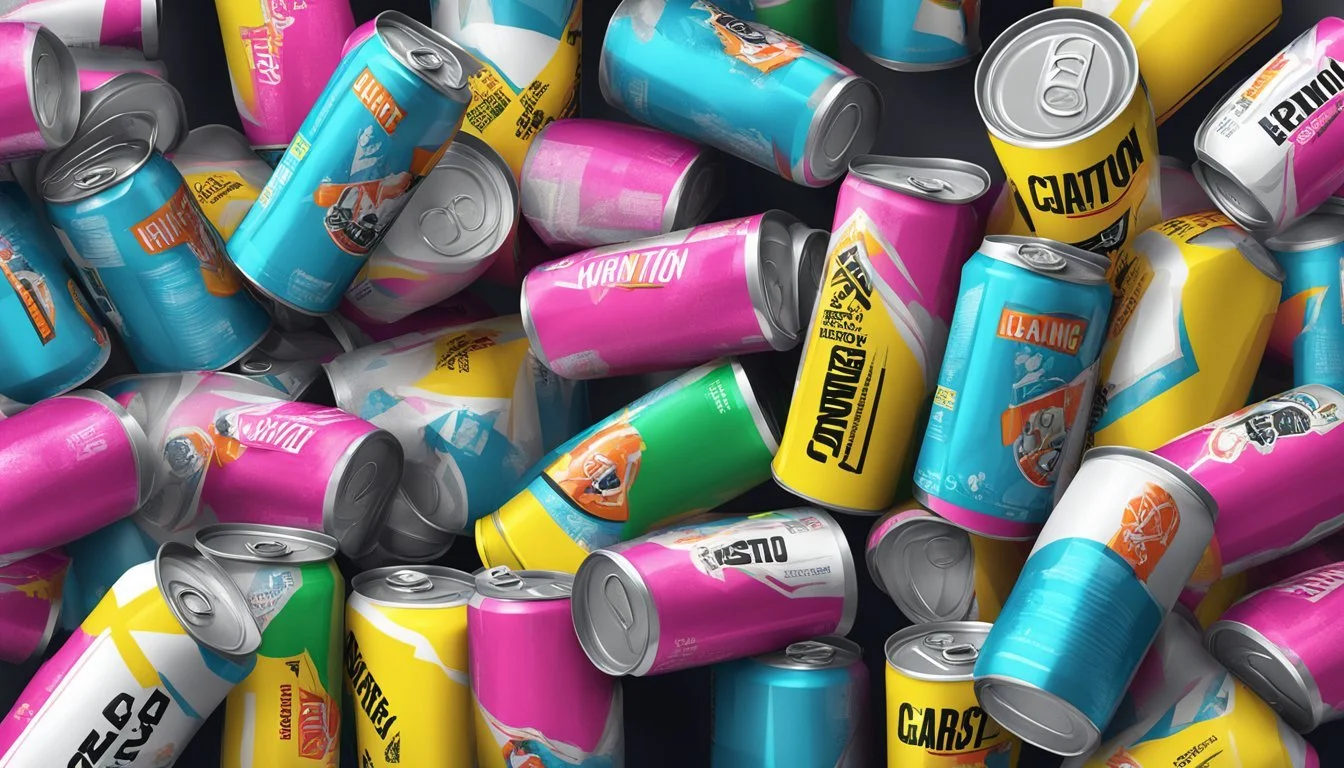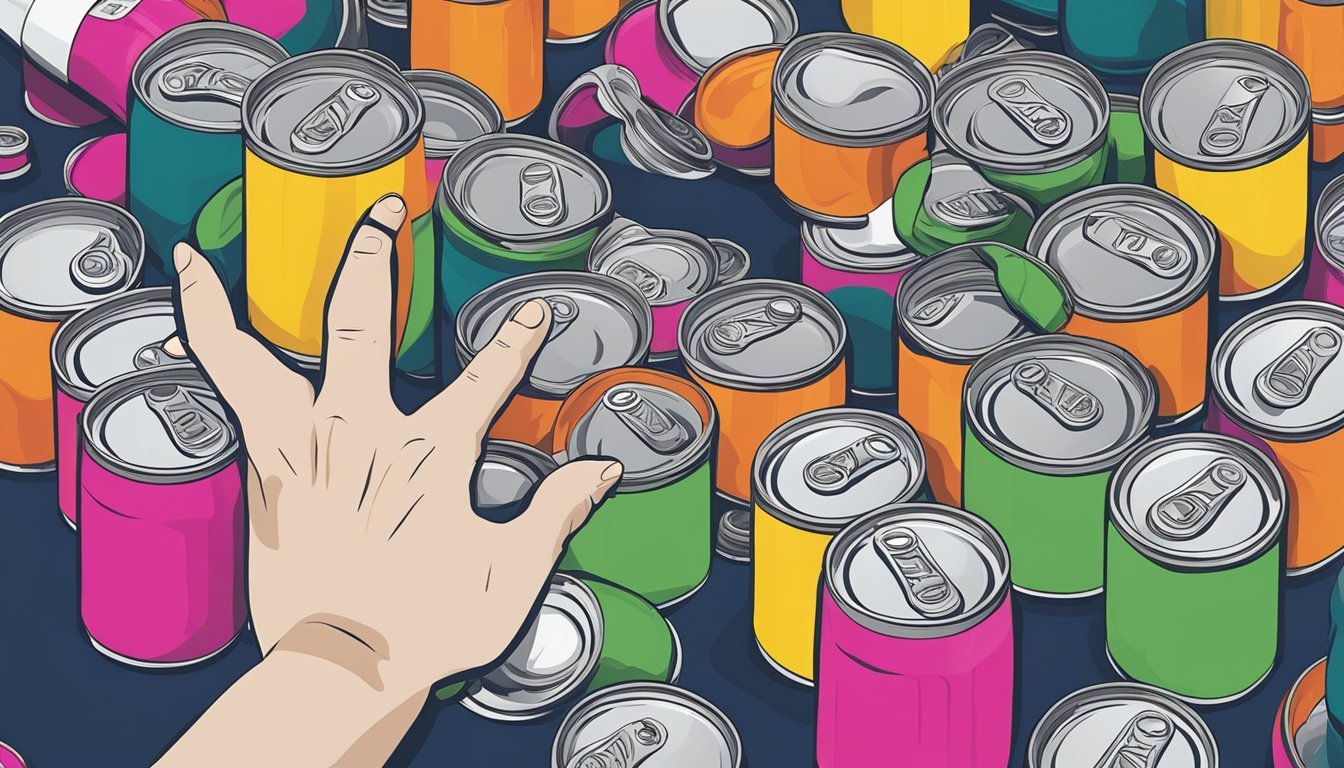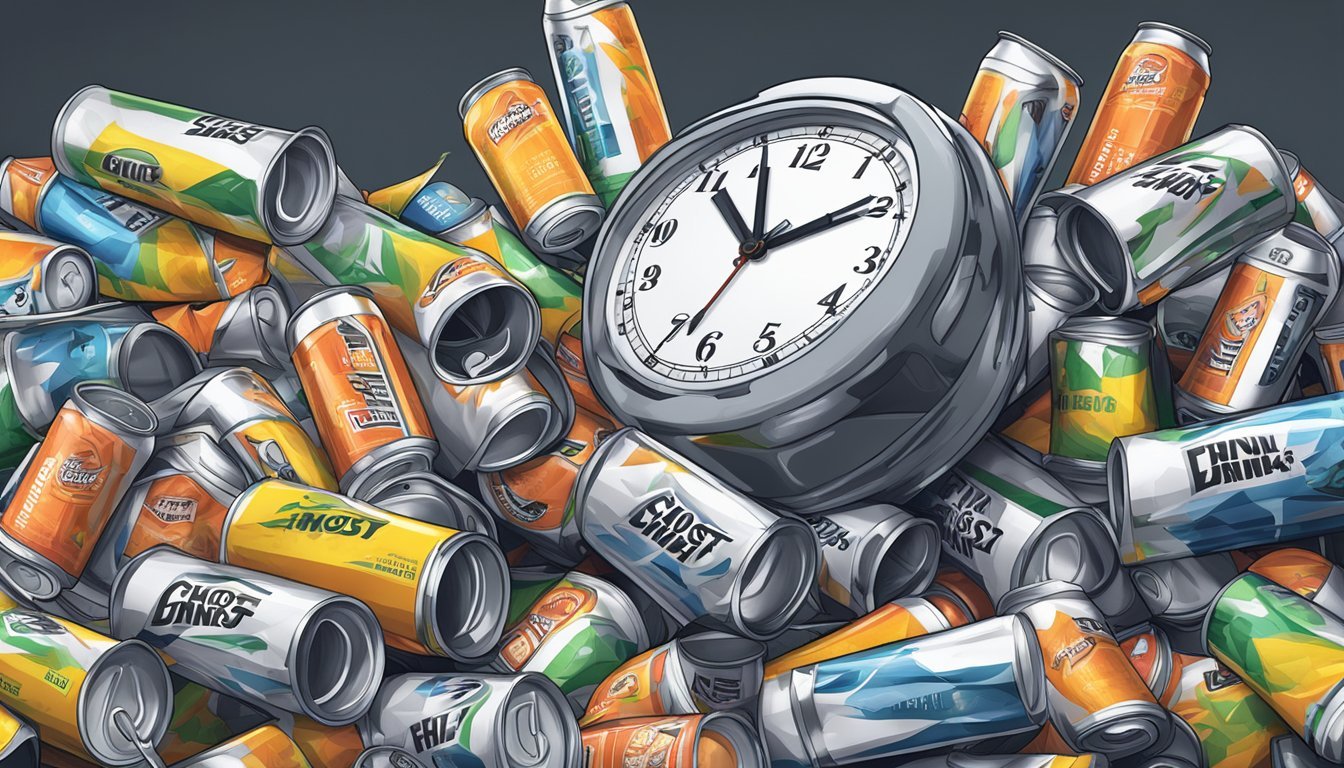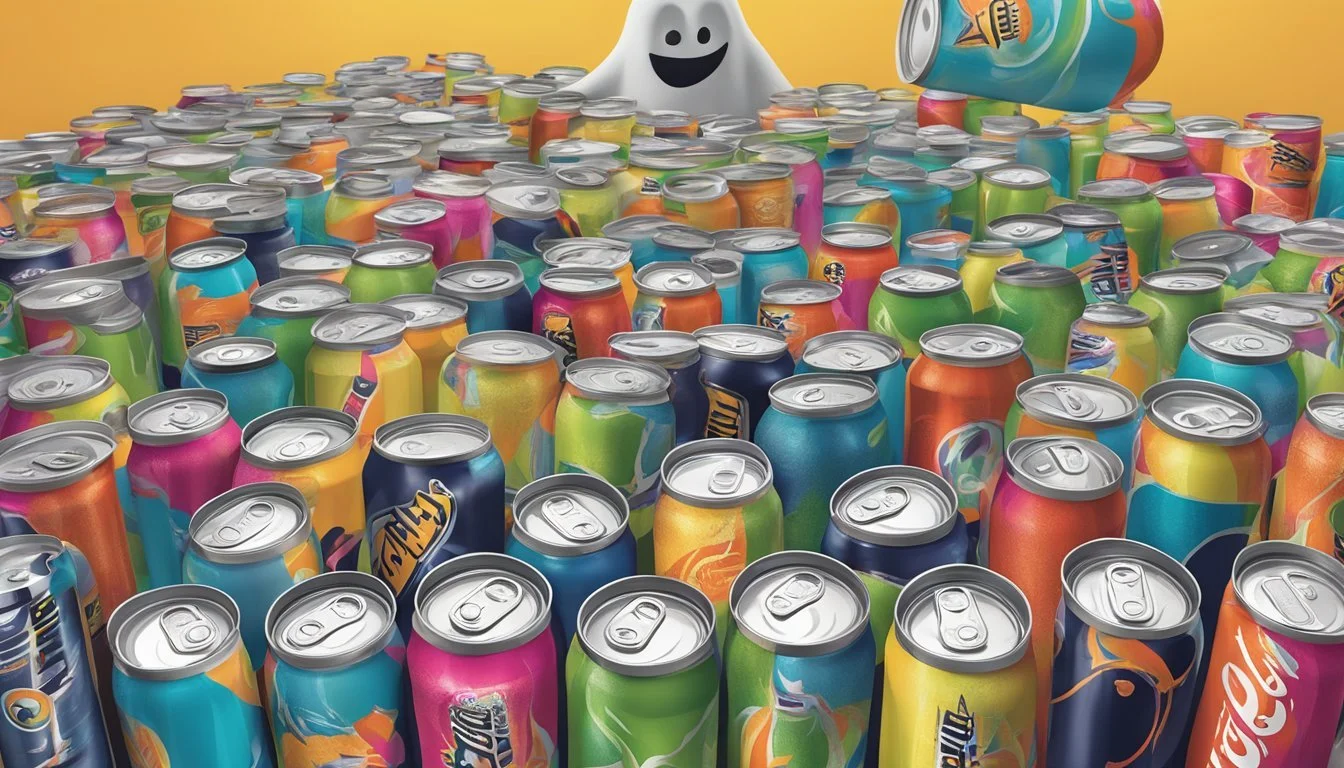How Many Servings of Ghost Energy Drink Is Too Much
Understanding Safe Consumption
Ghost Energy Drink has quickly gained popularity for its high caffeine content and bold flavors. With 200mg of caffeine per can, it's important for consumers to understand how many servings might be too much. Caffeine consumption carries potential risks, especially when combined with other sources like coffee or tea.
For most healthy adults, up to 400mg of caffeine a day is generally considered safe. This means consuming more than two cans of Ghost Energy Drink daily may lead to excessive caffeine intake and the accompanying side effects like jitters, anxiety, and insomnia. Moderation is crucial when incorporating energy drinks into your daily routine, especially given the fully transparent labeling that allows you to monitor your intake.
Balancing your caffeine consumption from various sources is key to maintaining your health. The potential health implications of overconsumption make it clear that monitoring how many Ghost Energy Drinks you consume is essential for maintaining well-being.
Understanding Ghost Energy Drink
Ghost Energy Drink offers a range of flavors and contains a variety of ingredients, giving it a distinctive profile. Knowing what goes into this drink can help consumers make informed decisions about how much to consume.
Composition and Ingredients
Ghost Energy Drink includes 200 mg of natural caffeine per can, aiming to provide an enhanced energy boost. Besides caffeine, it features taurine, which aids in muscle function and endurance, and amino acids, which are important for muscle repair.
The drink is sweetened with sucralose and acesulfame potassium, two artificial sweeteners that help maintain its sugar-free status. To preserve its quality, it also includes citric acid, sodium benzoate, and potassium sorbate. Various artificial flavors and colors are used to enhance taste and appearance.
Nutritional Information
A key selling point of Ghost Energy Drink is its sugar-free formulation, appealing to those monitoring their caloric intake. Each can contains roughly 5-10 calories, making it a low-calorie option.
The drink is fortified with B-vitamins, which support energy metabolism. Readers should note that excessive consumption of caffeine, vitamins, and additives may lead to adverse effects. The nutrition facts label generally includes elements like sodium and negligible amounts of fat and protein.
Flavor Varieties and Additives
Ghost Energy Drink is known for its vivid flavors, like Sour Patch Kids, which are meant to provide a unique taste experience. These flavors are created using artificial flavors and sometimes artificial colors.
Additives play a significant role in enhancing flavor and preserving the drink. Ingredients such as sodium benzoate and potassium sorbate ensure the drink remains fresh over time. Artificial sweeteners like sucralose and acesulfame potassium help deliver sweetness without extra calories.
The varied flavor lineup and transparency about ingredients enable consumers to make better choices based on their flavor preferences and dietary restrictions.
Health and Safety Considerations
When consuming Ghost Energy Drinks, it is important to be aware of certain health and safety considerations. Key points include recommended consumption limits, potential health risks, and identifying groups at greater risk.
Recommended Consumption Limits
The FDA recommends that the average adult limit their daily caffeine intake to 400 mg. Each can of Ghost Energy Drink contains 200 mg of caffeine. Therefore, it is advisable to consume no more than two cans per day to stay within safe limits.
Individuals who drink other caffeinated beverages, like coffee, should monitor their total caffeine intake to avoid exceeding these guidelines.
Potential Health Risks
Consuming Ghost Energy Drinks can lead to a range of health issues if not done in moderation. High levels of caffeine may result in side effects like increased heart rate, high blood pressure, and anxiety.
Additional risks include insomnia, nervousness, and headaches. Long-term, excessive usage increases the risk of heart disease and other underlying health conditions.
Groups at Greater Risk
Certain groups are more sensitive to caffeine and should be cautious with consumption. Children, pregnant women, and individuals with medical conditions like high blood pressure or heart issues are particularly at risk.
People who are sensitive to caffeine may experience heightened anxiety and other negative health impacts from smaller amounts. Prioritizing healthier alternatives or reducing intake is advised for these individuals.
Benefits and Positive Effects
Ghost Energy Drinks provide notable health benefits, including improvements in physical performance and cognitive function, that make them appealing to athletes and individuals seeking an energy boost. Comparing them with traditional energy drinks highlights unique advantages.
Physical Performance Enhancement
Ghost Energy Drinks contain 200mg of caffeine per serving, known for enhancing physical performance. Caffeine helps to increase alertness and focus, enabling better workout sessions.
Additionally, these drinks include acetyl-L-carnitine, which aids in fat metabolism and increases endurance. Athletes may experience improved exercise performance and sustained energy levels.
Other ingredients like l-carnitine contribute to reduced muscle fatigue, making it an ideal pre-workout supplement.
Cognitive and Mood Benefits
Alpha-GPC in Ghost Energy aids in cognitive function and enhancing mood.
This compound supports memory and brain function, making it beneficial for cognitive tasks. NeuroFactor, derived from coffee fruit extract, also contributes to brain health by increasing brain-derived neurotrophic factor (BDNF) levels, supporting mental alertness.
Furthermore, ingredients such as ginseng can improve mood and reduce stress, leading to better overall mental well-being.
Comparisons with Traditional Energy Drinks
Compared to traditional energy drinks, Ghost Energy offers unique advantages.
While many energy drinks rely solely on caffeine, Ghost Energy combines multiple ingredients like alpha-GPC and l-carnitine, providing both physical and cognitive benefits.
Additionally, Ghost Energy's formulation focuses on sustained energy without the crash often experienced with other energy drinks. This makes it a preferred choice for those seeking comprehensive health benefits and sustained alertness over a prolonged period.
Consumer Information
Ghost Energy Drink offers various features that are appealing to many consumers, such as being sugar-free and containing both natural caffeine. Below are critical details on its label transparency and considerations for special diets.
Label Transparency and Claims
Ghost Energy Drink prides itself on transparent labeling, providing detailed information about the ingredients and their quantities. Each can contains 200mg of natural caffeine, equivalent to two cups of coffee, which is clearly stated. This level of transparency can help consumers make better-informed choices, especially those concerned about caffeine intake.
The drink also highlights being sugar-free and using artificial sweeteners, which can make it seem like a healthier alternative to sugary drinks. Athletes and fitness enthusiasts may appreciate the absence of sugar to avoid unwanted calories. Registered dietitians often recommend checking labels for these details to maintain a balanced diet.
Considerations for Special Diets
For individuals on special diets, such as those with diabetes or those avoiding sugar for other health reasons, Ghost Energy Drink's sugar-free claim is important. The use of artificial sweeteners instead of sugar can be beneficial for those needing to regulate their blood sugar levels.
However, it's crucial to be aware of possible sensitivities or reactions to artificial sweeteners, as some people may experience digestive discomfort. Fitness enthusiasts or athletes usually monitor their caffeine intake closely. It's beneficial that Ghost Energy Drink clearly lists caffeine content, allowing for better management of daily consumption.
In summary, the transparent labeling and specific claims make Ghost Energy Drink a viable option for various consumers, especially those mindful of sugar and caffeine intake.
Lifestyle and Behavioral Factors
Incorporating energy drinks like Ghost into one's routine and its effect on sleep patterns is crucial for understanding safe consumption levels. Poor lifestyle habits and disrupted sleep can elevate the risks associated with excessive intake.
Incorporating Ghost Energy into Daily Life
Fitness enthusiasts often turn to energy drinks for a boost before workouts. Ghost Energy, with 200mg of caffeine per can, can enhance physical performance and alertness. Moderation is key, as exceeding safe levels of caffeine may lead to health issues such as heart palpitations and increased anxiety.
A single serving can fit into a healthy lifestyle if balanced with other sources of caffeine. Those who drink coffee or other caffeinated beverages should track their overall intake to stay within recommended limits. Monitoring consumption helps prevent the negative side effects linked with excessive caffeine.
Sleep Patterns and Energy Drinks
Energy drinks can significantly impact sleep patterns when consumed in large quantities or too close to bedtime. Insomnia and sleep deprivation are common side effects of high caffeine intake. Ghost Energy's 200mg of caffeine can linger in the system for hours, potentially disrupting sleep if consumed late in the day.
Good sleep hygiene is essential for those who rely on energy drinks. Avoiding these drinks in the evening and monitoring daily intake helps maintain healthier sleep patterns. For consistent, quality sleep, it's best to limit consumption to the morning or early afternoon hours. This practice ensures that the stimulating effects of caffeine do not interfere with a restful night's sleep.
Alternatives and Substitutes
For those looking to limit their intake of Ghost Energy Drinks, there are numerous options that offer energy-boosting effects without high caffeine or sugar levels. From natural sources to homemade solutions, these alternatives can provide sustained energy with added health benefits.
Natural Alternatives to Ghost Energy
Kombucha is a popular fermented tea that contains probiotics and B vitamins. Its caffeine content is moderate, about 10-15mg per 8-ounce serving, making it a gentler option for an energy lift.
Green Tea boasts natural caffeine and amino acids like L-theanine, which can enhance focus and calmness. With around 35-70mg of caffeine per cup, it offers a balanced energy boost.
Yerba Mate provides a combination of caffeine, theobromine, and antioxidants. It typically contains about 85mg of caffeine per serving, delivering a smooth and prolonged energy boost.
DIY Energy Boosting Options
Homemade energy drinks can be a healthier alternative to pre-packaged options. Lemon Water with Honey is a simple mix that can rehydrate and energize. Lemon provides vitamin C, while honey offers a natural sugar source.
Chia Seed Drinks mix chia seeds with water and lemon for an energy boost from omega-3 fatty acids, protein, and fiber. This drink promotes hydration and sustained energy release.
Smoothies made from fruits, vegetables, and natural supplements can be tailored to individual preferences. Ingredients like spinach, bananas, and chia seeds provide nutrients and steady energy without artificial additives.
These options ensure a healthier intake of energy-boosting nutrition.
Conclusion
To determine the safe consumption of Ghost Energy, examining daily caffeine intake is crucial. Each can contains around 200-250mg of caffeine. Moderation is essential to avoid negative health effects like heart palpitations and insomnia.
For most healthy adults, up to 400mg of caffeine per day is generally considered safe. This means consuming more than one Ghost Energy drink per day is not advisable, especially if other sources of caffeine, like coffee, are consumed.
Excessive sugar intake from these drinks can also pose health risks. Some flavors of Ghost Energy contain up to 25 grams of sugar. High sugar consumption can lead to weight gain and other health problems like type 2 diabetes.
Regularly monitoring and limiting intake is key to maintaining health. Combining these energy drinks with other caffeinated or sugary products should be approached with caution to avoid surpassing recommended limits.

